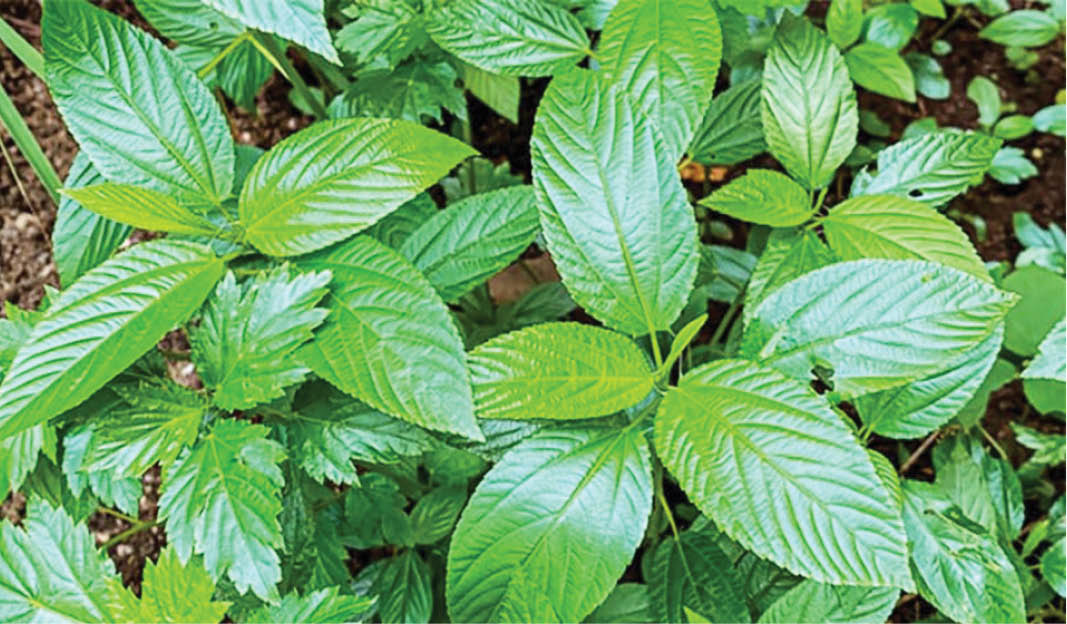Farming jute leaves, also known as ewedu in Yoruba or rama in Hausa, either at the back of your house or garden, can fetch you quick and good money.
According to Mrs Patience Iyang, a renowned vegetable farmer in Garam, Niger State, planting, weeding and harvesting the vegetable are simple.
- NALDA to engage 2,000 fish farmers, 1,040 soil scientists in Borno
- How explosive targeted at bandits killed 7 Zamfara kids
She told Daily Trust on Sunday that her family had been living mainly on the proceeds from her vegetable garden, mainly ewedu.
“There is no time you will come here and not get ewedu leaves. I cultivate the garden all-year-round,’’ she said.
Aside its economic benefits, a nutritionist, Toyin Adebimpe, said eating ewedu was very beneficial. According to her, it protects the eyes, improves digestion, treats inflammation, maintains healthy teeth and gum, among other benefits.
Dr Joel Akinfasoye, an agronomist in the National Horticultural Research Institute (NIHORT), Ibadan, said the cultivation of ewedu, especially during the dry season, is a highly profitable venture.
The head of Horticultural Consultancy and Venture Unit, NIHORT, said `ewedu’ farming was thriving as its consumption is prominent in the country, especially, in the South-West.
He added that farmers would not have problems in marketing the vegetable as the demand for it would always be on the increase due to its importance.
“Today, people are exporting `ewedu’ to Europe while many African kitchens in the Diaspora cannot but request for the vegetable. Some big supermarkets in Nigeria also display the vegetable on their shelves.
“Its cultivation in the dry season is restricted to the valley bottom or river banks, known as FADAMA (Hausa) or Akuro (Yoruba), it grows naturally on the farm during the rains, especially in areas where it had been planted years back,’’ he said.
Dry season management
On the management of `ewedu’ farms in the dry season, the agronomist said a good land preparation would be required.
According to him, all debris, stumps, stones and pebbles must be removed in the land, while it is important to make raised beds of about one metre wide, to any convenient length.
“Advantage of this is that the soil becomes loose for water percolation, aeration and easy penetration of the roots of the crop.
“The seeds are treated with heat, either through hot water or frying in a hot plate for a few minutes in order to break the dormancy.
“Rudiments of planting involve the mixing of the seeds with dry loose sand in a ratio of 1:10 and a shallow troup is made on the two sides of the bed at 75cm.
“The mixture of sand and seed is drilled along the troup. After drilling there must be wetting of the farm and regular watering, at least twice a week.
“After three weeks, the first harvest should be done. Weeding should also be done at when due,’’ he said.
Akinfasoye, however, urged the federal government to create farms as FADAMA, assist farmers to prepare the land and provide all the necessary inputs for them.
“Within a period of one month after planting the vegetable, revenue will be trickling in. This will certainly improve the livelihood of farmers, citizens and boost the national economy by extension,’’ he said.

 Join Daily Trust WhatsApp Community For Quick Access To News and Happenings Around You.
Join Daily Trust WhatsApp Community For Quick Access To News and Happenings Around You.


